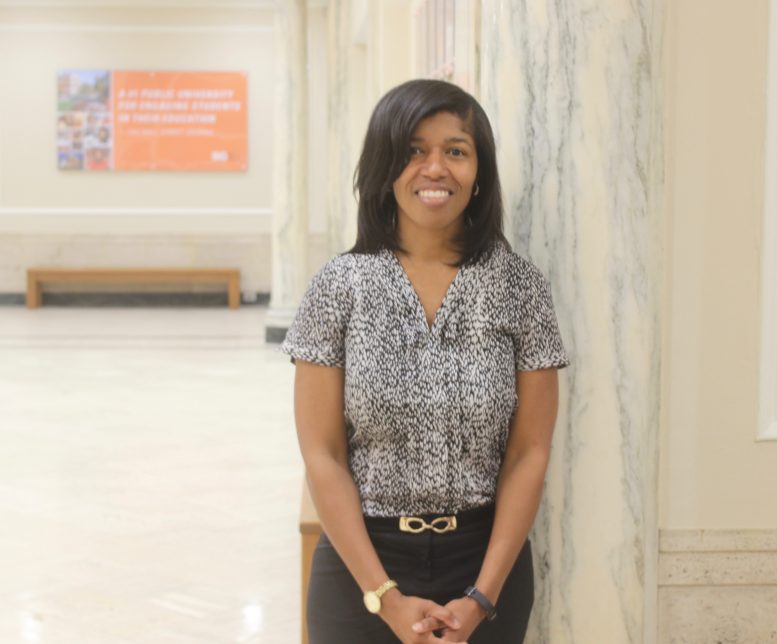WASHINGTON — Ohio colleges welcoming some students to campus this fall despite the pandemic face a second major challenge.
They also must put in place major new federal rules on campus sexual assault and misconduct that extend added rights to the accused.
Aligning university policies with the new federal regulations — while also overhauling health and safety protocols to battle COVID-19 — in a matter of months has been “an enormous hill to climb,” said Jennifer McCary, chief diversity officer at Bowling Green State University.
Policy changes in both areas have major implications for students, faculty and staff and must be conveyed at a time when everyone already feels overwhelmed, she said. Education Secretary Betsy DeVos, who launched the process of writing new rules to replace Obama-era guidance, has said they are needed to support survivors of sexual misconduct “without sacrificing important safeguards to ensure a fair and transparent process.”
Sexual violence on college campuses, meanwhile, is not uncommon, with nearly a quarter of undergraduate women experiencing rape or sexual assault by force, violence or incapacitation, according to the Rape, Abuse and Incest National Network.
“In this virtual world, we have a very limited amount of time to capture someone’s attention,” McCary said, noting that the university is also raising awareness about substance use, free speech and other important topics as students return to campus in person and online. “In the midst of all of that, we have to communicate there have been some major changes” to federal sexual harassment policies.
“It’s been an enormous challenge.”
The new federal rules expand rights for people accused of sexual misconduct on college campuses and make other changes regarding schools’ obligations to respond to misconduct complaints.
In particular, they require schools to dismiss cases that occur during study abroad trips or outside school programs or activities or that don’t meet more stringent definitions of sexual harassment, according to the National Women’s Law Center. Schools can also ignore cases that aren’t reported in formal complaints, and survivors and witnesses are subject to live and potentially “retraumatizing” cross examination in a trial-like atmosphere, though the accused is prevented from directly confronting an accuser.
The rules fall under Title IX of the Education Amendments of 1972, which outlaws sex discrimination in education programs or activities that receive federal funds. They were finalized in May — giving colleges and universities three months to implement them by the Aug. 14 deadline.
Spreading the word about them is another major challenge — and time is of the essence. Students face higher risks of sexual violence from August to November, according to the Rape, Abuse and Incest National Network, and first-year students are at special risk.
DeVos says the new rules will improve due process in campus sexual assault cases and create a fairer adjutication system. And the Trump administration says they were carefully developed with years of research and consideration of more than 124,000 public comments.
But critics say they will roll back the clock on gender equity in education by discouraging victims from coming forward and causing school officials to investigate fewer complaints of sexual misconduct.
In Cincinnati, student activists have slammed the University of Cincinnati for failing to adequately protect survivors, according to Inside HigherEd. Alumna Grace Cunningham, who reported an off-campus rape in 2015 that she said would not be considered under the new rules, told the publication she’s concerned the university will use the regulations to dodge responsibility in cases of sexual misconduct.
A university spokesperson did not respond to a request for comment.
Critics have also assailed the timing of the new rules.
“That the Department of Education has spent its time finalizing this out-of-touch rule rolling back decades of progress instead of helping students and educators weather the coronavirus crisis highlights the staggering depths of this administration’s contempt for survivor justice and campus safety,” House Speaker Nancy Pelosi (D-Calif.) said in a statement after the rules were finalized in May.
Eighteen attorneys general filed a lawsuit in June challenging the rules against DeVos and the Education Department, but a federal judge has allowed the regulation to move forward, according to The Washington Post. Another group of attorneys general filed a brief in support of the rules.
Ohio Attorney General Dave Yost, a Republican, did not lend his name to either effort.
Emily Martin, vice president for education and workplace justice at the National Women’s Law Center, pledged to continue to fight the rules in court but said colleges should set higher standards in the meantime.
“As students head back to school during a health pandemic surrounded by uncertainty, schools can at least have students’ backs when it comes to sexual harassment and assault,” she said in an Aug. 14 statement.
An ‘extra step’
Bowling Green’s McCary said the new regulations could cause delays or turn people away because they require students to take an “extra step” by filing complaints to a college Title IX coordinator or their designee. Institutions could see fewer complaints due to other policy changes as well, she said.
To ensure compliance with the new rules, McCary and others worked across student and employee groups and representatives to revise sexual harassment policies and to educate the campus about them through university channels. The need to do so in a short time frame — and during a pandemic — initially caused “some panic,” she said.
Other colleges and universities across the state and the U.S. have also been forced to rush through policy changes to comply with the new law.
In Columbus, The Ohio State University wrote “interim” policies on sexual misconduct and workplace discrimination and harassment and faculty rules this summer, according to Katherine Lasher, the university’s associate vice president for institutional equity. The university now has two definitions of sexual harassment — one that meets the new Title IX requirements and one that meets other legal requirements and community expectations.
It will begin the process of adopting full revisions to procedures for intake, investigation, adjudication, sanctioning and appeals this academic year.
In Athens, Ohio University administrators have been “working diligently” to revise policies and procedures, according to Kerri Griffin, the university’s Title IX coordinator. “As we continue to comply with the law, Ohio University’s commitment to due process will remain unchanged,” she said in a statement.
Kent State University officials, meanwhile, have reviewed and revised administrative policies and procedures to comply with and implement the new rules and align them with the university’s mission and values, according to Vice President for Human Resources F. Jack Witt and Tiffany Murray, director of gender equity and Title IX coordinator.
They announced the new regulations in a recent newsletter and said the university will host a listening session, training workshops and other informational activities to educate students, faculty and staff.
Miami University has posted information on its website, and notes that the university, “as a recipient of federal funds, complies with Title IX.”
Oberlin College spokesperson Scott Wargo declined to comment but pointed to the college’s office of equity, diversity and inclusion, which states that it complies with all federal, state and local nondiscrimination laws.





